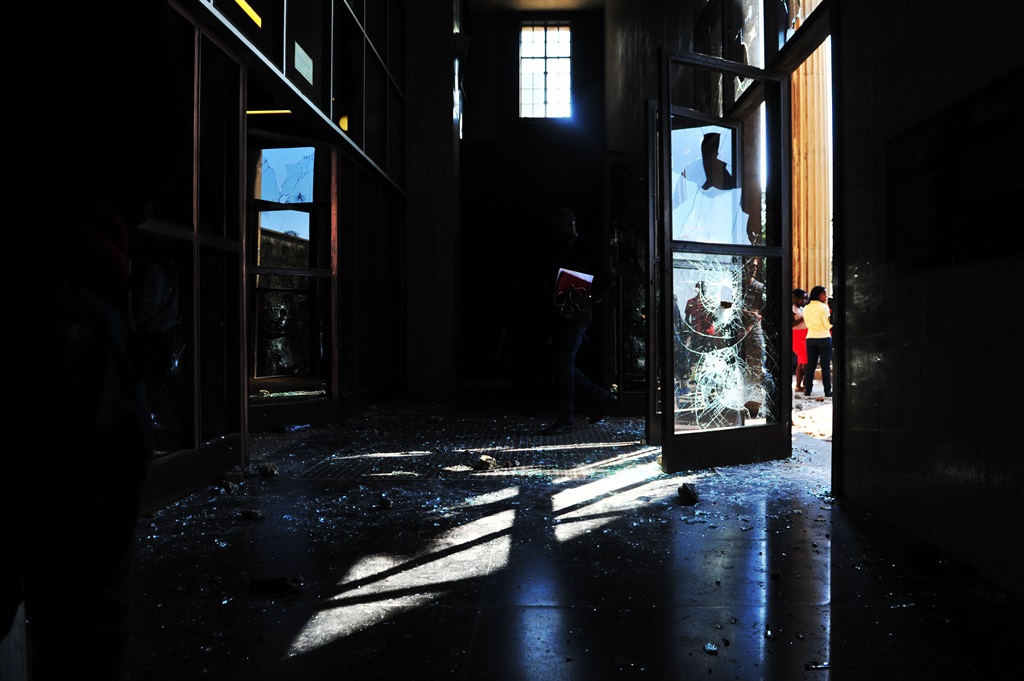
The #FeesMustFall movement and the response from government and university leadership are all trying to solve a tiny part of the problem.
Let’s start from first principles so we are clear on what the whole problem is.
Everyone should be entitled to education to their full potential. The neoliberal concept of education as a commercial good is deeply flawed because it ignores the social good of an educated society and ignores the fact that a wealthy person who is not particularly bright does not benefit as much from education as a poor person who is very bright.
Education is not only about academic or intellectual skills; it can also be about hands-on skills. The focus on making university accessible to all misses the important point that university is not the only route to useful skills.
So: to where we are now.
Pupils at a well-funded private or fee-paying school almost all pass matric, and close to all matriculants in many of these schools achieve a university pass. Does that actually make sense? Is it really true that all kids with rich or moderately well-off parents have the innate ability to study at university? Or, to look at it the other way around: if you have enough money to attend a posh school, is a career as a plumber or a carpenter beneath your dignity?
Aside from equity, the other problem is that wealth-dependent education reduces education to a commodity that can be bought and sold: the flawed neoliberal concept I reject at the outset. The crux of the thing should be your innate capacity – if you have great intellectual skills but are not very good physically, you may make a good academic, but probably should not try for a career in plumbing. The money you put into education can fill gaps but can’t turn you into something you are not.
Apartheid-era exclusion of black South Africans from higher education created a kind of snobbery against hands-on skills – yet these are very important and there is a much bigger shortage in this country of electricians, plumbers, bricklayers and electricians than of lawyers.
This snobbery creates an inverted pyramid where the most expensive kind of study – sometimes in least demand – dominates the higher education sector. We have about one million students in universities around the country. According to department of higher education and training’s 2014 statistics, the number in colleges is significantly less, while the number in learnerships and apprenticeships is about 80,000 – less than 10% of the number who are in universities. Some call this the “inverted pyramid”.
How do we turn this around?
As long as there is the perception that being a plumber, carpenter, electrician, bricklayer and so on is an occupation for the poor, telling the poor to target those options rather than university is not going to fly.
On the other hand, telling parents who have spent a small fortune on getting their kids a decent matric that they should learn a hands-on skill rather than going to university is also a very hard sell.
Yet somehow we have to tackle this problem because limiting university access to those with intellectual rather than practical skills will have two very big benefits. The system as a whole can be made accessible and affordable if we are supporting a smaller university system, and we can raise the status of manual skills, thereby attracting those with the best potential to those fields.
How do we start?
One of the problems with the matric system is that it has been dumbed down so that there is at least some chance that a bright kid at a dysfunctional school can pass.
The effect of that is that you do not have to be particularly strong on intellectual skills to get a university-grade pass if your family can afford to throw enough money at you. We therefore need to rethink university access.
A matric pass on its own is a bigger indication of where you went to school than how well you are suited to intellectual work. Other options could include a measure of how good you are relative to your school, an aptitude test that measures skills independently of school results and a post-school year that is open to all that aims to stream to practical and intellectual options.
I return to the other problem: the view that hands-on skills are less admirable than intellectual skills. This derives from the apartheid-era devaluation of manual skills that was used to justify low wages for black workers. But are these occupations still so undesirable?
I looked at some statistics at www.payscale.com, a site that gathers data on salaries. Nurses, for example, earn less on average than electricians. Plumbers are paid significantly less on average, but top plumbers earn very well.
People who excel in these areas can start their own successful business; they can and should be highly valued members of the community.
In the meantime, we should not lose sight of the other hard unresolved problem: the unacceptably poor standard of the overwhelming majority of fee-free schools. Solving this problem is not a matter of money but of political will.
Far poorer countries than South African have much better school systems. For all its problems, Zimbabwe puts us to shame in this area. Get this right, and the matric system can be recalibrated to do what it is supposed to do: pointing to the appropriate next step in the educational system, rather than certifying how much money parents are willing to throw at a school.
Fixing access to university is a hard problem. It is commendable that student protests have forced the government to start taking this issue seriously for the first time in more than 20 years. But we need to solve the whole problem, not just the obvious part, if we are to make real progress. And that is a lot harder than just adjusting the funding model.




 Publications
Publications
 Partners
Partners








